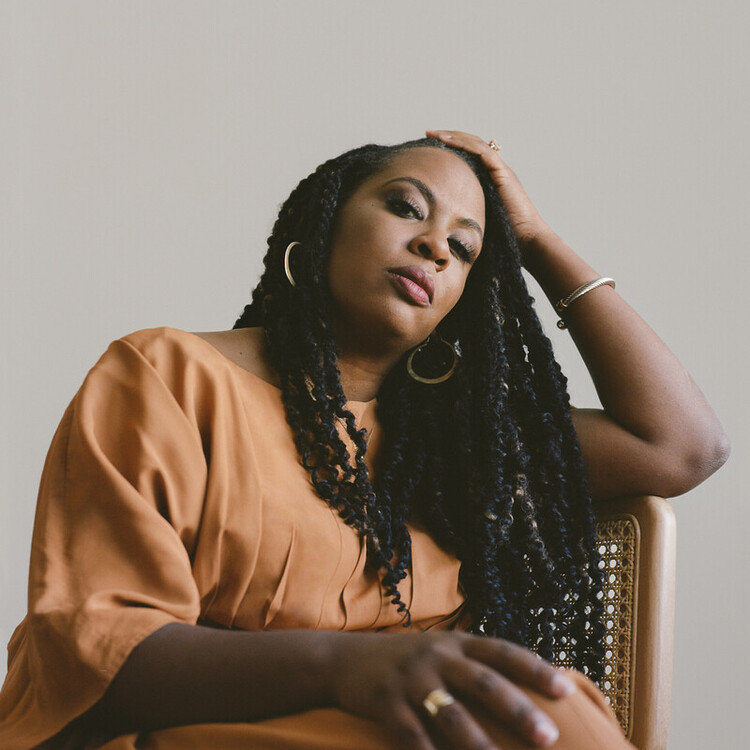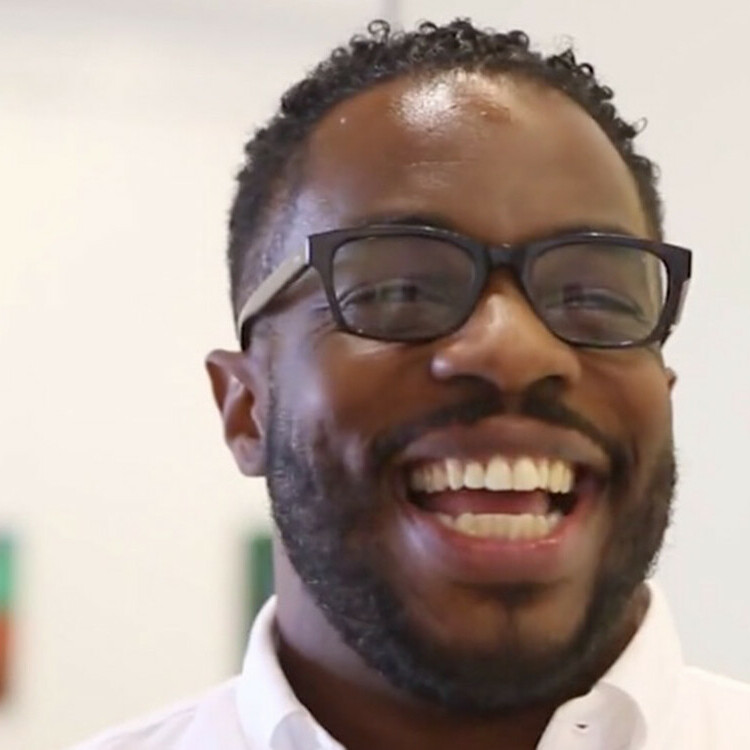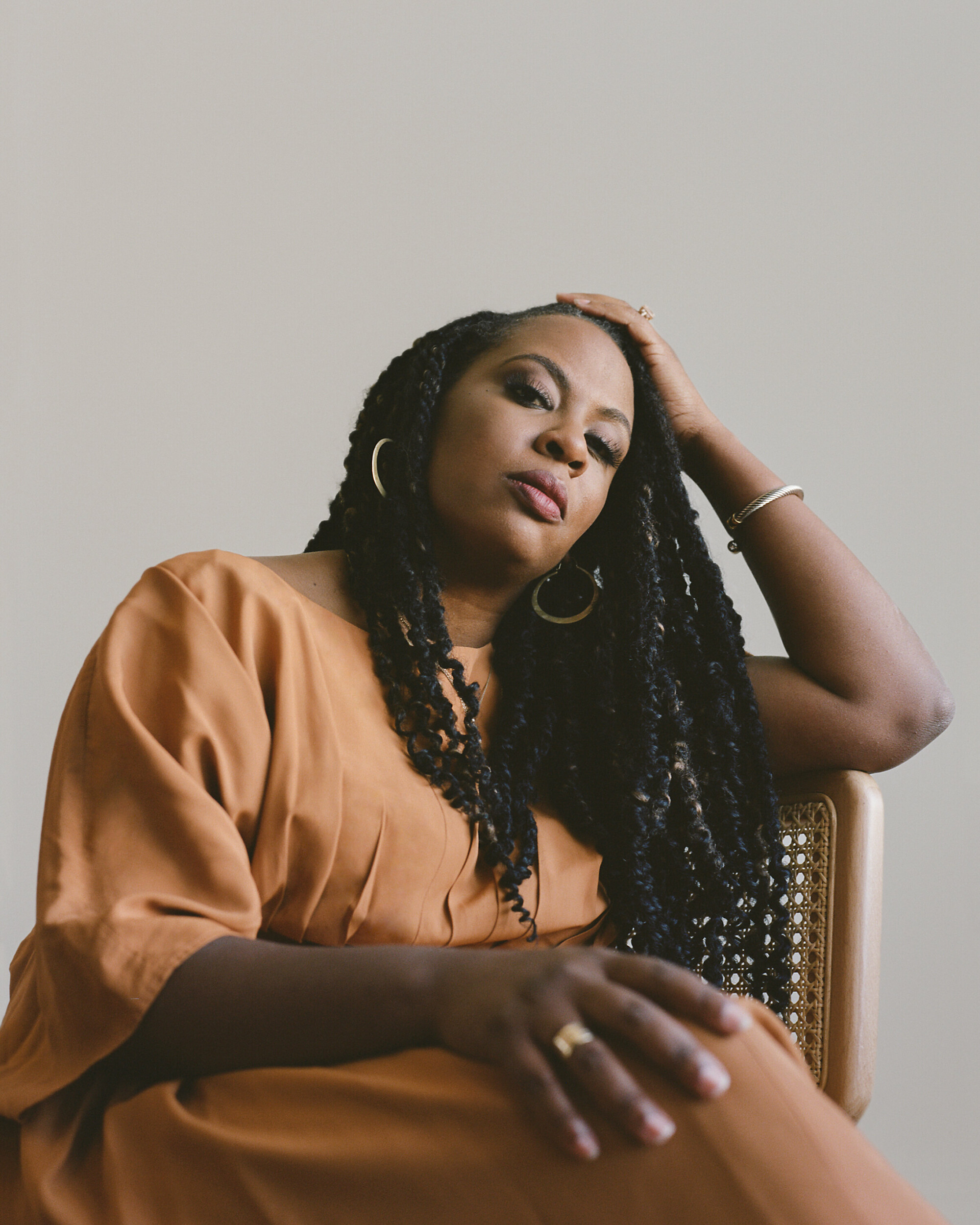Carl: There are the systemic parts of institutions and then there’s the playing space. Systemic racism and systemic patriarchy are built in, and those things move at a glacial pace. And in the playing space—the theatre—I think we’ve made some progress in the arena of representation. You look at some theatre seasons over these last five, seven, eight years, and they look a lot more interesting than they did a decade ago.
In this moment of quiet, there has been a real reckoning in the culture, with George Floyd and Black Lives Matter. And that reckoning has obviously come to the theatre as well, but it’s been a very different kind of reckoning. How have you perceived that, and can this reckoning actually shift some of the systems? Because that’s where I think the target is now: the systems, not just the representation.
Kamilah: One thing about representation, and I think it’s applicable to theatre and the music industry, is that yes, strides have been made around theatre seasons, but how do we make sure who’s on stage is more diverse? I’m also very interested in who we’re inviting to the theatre. A lot of that has to do with how we’re producing and who’s doing the producing. It is one step to actually change the images of what’s happening on the stage but another to change who’s actually in the institutions, who’s on the boards, because those are very critical decisions to how we shift what the experience is like when someone comes to the theatre. Who’s being invited? Who, when we say our “core audience,” are we actually talking about?
Until the stakeholders of the institutions have shifted their own ethos around that, will there really be significant and long-standing systemic change? And I don’t say that it’s not coming. I do think it is. But given the nature of nonprofits, it takes a lot longer for that kind of change to happen. And it also takes a lot longer because of the idea of canonization of art and the art form, because we hold on to those old stories. People say, “But no, this is what we’ve always done, and this is what we’re teaching in the academy. And ultimately then we’d have to change that. And then we...” There’s a lot of thinking that ultimately has to be disrupted, for real shake-up to happen. So that’s all to say we’ve still got a ways to go.
Carl: Yeah. I wonder about the intersection of capitalism and entertainment, and how that keeps producing systems looking a particular way, even as there’s maybe different representation on stage. You’re at the Apollo Theater in New York now. Do you see shifts in terms of the business as well as the experience?
How do we be really, truly vibrant and responsive to culture, to community? We’ve got to do some things different.
Kamilah: We’re starting to see that shift. It’s really been interesting being at the Apollo, because this is one institution where I can track a ninety-year history of how arts and culture have been integrated and distributed, and see how the institution has had to pivot when circumstances and conditions changed.
I’ve been revisiting the idea of reinvention. About every ten years, you’ve got to question, “What am I doing? How is this affecting the world? How is this affecting me? Do I need to do something completely different? How am I doing it?” Institutions need to do the same thing, particularly cultural institutions, simply because culture changes at such a rapid rate. And unfortunately, the systems of institutions have been built on systems of capitalism, which are, at times, very mammoth and not as nimble—particularly the models they have followed. Therefore, they are not as easy to turn around and be as responsive as necessary to be truly vibrant.
This is a conversation we’re wrestling with at the Apollo. How do we be really, truly vibrant and responsive to culture, to community? We’ve got to do some things different. There are some things we’ve done for a very long time that we have to question. Are they really serving? I don’t think so. So I’d like to disrupt that and ask those questions on a consistent basis—of myself, my own institution, and other institutions, as well.
Wes: I want to take that same energy and look at it from the purely business administrative point of view, Kamilah. As a creative and now also the executive of the Apollo, all of this seems like it could be in your hands to move, but I’m sure it is difficult. How are you approaching this? What are some of the things that the Apollo has been doing that you’re trying to break? What are some new methodologies from an operational level?
Kamilah: The Apollo was founded as a commercial music venue in 1934 and was operated for much of its history, until the mid-eighties, as such. The idea was to get the bigger acts, because ultimately it was all about the expense-to-profit margin—that kept the business running. But it also became an incredible home to African American artists, African American voices, and a nurturer of a cultural history. We became a nonprofit in 1991, and that was very purely a business decision. Because as a 1500-seat theatre in New York City, and as a union house, the business model no longer worked. The profit margins were so slim, you could no longer run the theatre. But our leadership at the time understood the historical significance of the institution, and went to the state, built a nonprofit board, pulled a board chair together, and landmarked the building so the theatre could continue to operate.
Over the last ten years, we’ve almost reverse-engineered, saying, “Now that we’re a nonprofit, and as a historical home, what is our mission?” We’ve come at it from a very different direction. In some cases, I think it’s a real opportunity, because we are a ninety-year-old institution, but really only have a ten- to fifteen-year history as a nonprofit organization. That’s allowing us the opportunity to be nimble in what it is we’re responding to, and what our mission is today. That’s what’s exciting to me, as a leader. We’re an $18 million organization. There is no African American performing arts organization that’s focused on multidisciplinary arts—no African American arts organization with the same history and size—in the country. Period, full stop. Therein lies our opportunity, but therein also lies our responsibility.
I came to the Apollo about four years ago, and I remember reading one of the Theatre Communications Group reports and reports from Todd London about playwrights and diversity around the country, and the percentage of African American plays produced was 4 percent. In New York City, five percent. In New York City, which is a majority minority city, the works we were putting on our stages was not reflective of the people who lived in our city. So we saw ourselves as an opportunity to be a home for not only these voices but the next voices of the twenty-first century. Not just in theatre, but in multidisciplinary arts. We then started to look at the commissioning landscape in music. A commissioning study, particularly around orchestral music, was put out that said that 1.5 percent of the commissioning dollars—and we’re talking hundreds of millions of dollars—was going to African American composers and musicians. So where we see ourselves now is trying to fill that gap, building a twenty-first-century canon with African American voices and artists at the center and being a home for those voices.
We’re looking at artists we know will be definers for the twenty-first century: the writer Ta-Nehisi Coates, the choreographer Camille Brown, the collective Ebony Noelle Golden. We’re looking at ourselves, not just as a music hall and as a presenter but as a commissioner and a developer of new works. Responding to the need of what we saw in the landscape was a big part of our strategy.
If we’re supposed to be leaders of culture, why aren’t we five steps ahead?
Carl: You talk about how theatre is going to be more responsive in this time period. Almost all of the playwrights I know are now writing for TV. They’re still writing some plays, but we’ve lost a lot of theatre writers, because they actually make money when they write for TV and film. In terms of your own career, you bounced back and forth. Where does the world of new works live given this migration to another art genre?
Kamilah: I’m excited about the genre crossing. This is an opportunity to commission and develop work not just for the stage, but also television. Four years ago, we wouldn’t want to put that in a contract, because we couldn’t really see the trajectory of that. I think about Coates’s Between the World and Me being one of the examples, which was imagined for the stage at the Apollo and then reimagined for film. The Apollo still owns development intellectual property (IP) of several of those iterations, so we’re able to ride the journey, if you will, of each sort of manifestation of the work. And quite frankly, I think that’s the future. We’ve got to be thinking about storytelling in many different mediums, because culture is moving so rapidly. As institutions, we have to figure out how to catch up. As producers, we have to figure out how to make sure we’re holding space for all of these conversations and manifestations of work to happen. It’s really a catch-up game, because the creators of culture, the writers, are way ahead of us.
Carl: I teach across disciplines, including the performing arts. Even in my own career, I’m crossing genres all the time. It’s the only way to survive as an artist. At Emerson, the performing arts is a separate discipline from visual and media arts. We’ve historically created a clear divide between them. When you talk about the Apollo jumping into the IP of TV and film, that’s a big deal. It’s been an argument for a long time: where the IP lives, how people benefit, and how theatre institutions are going to survive in the long haul. It’s a radical idea about the future of the form.
Kamilah: Yeah. The artists are already traversing forms, and there are no boundaries. It’s us who have to catch up. I also think this time period has taught us something in theatre. I remember 15 March 2020. Things shut down for us at the Apollo. We saw our balance sheet lose $5 million in a matter of hours before the fiscal year-end—cancellation, cancellation, cancellation, cancellation. We had to scramble to figure out how we were going to survive, how we were going to do things differently. And it was a really fast pivot. I think about it now and it’s like, yeah, these things were in the back of our minds—“We’re going to get to our digital strategy, that’s the future.” But this was a swift kick in the butt. We needed to get our act together and do things differently quickly. And that, I think, was the biggest lesson.
For me, it’s always: “How can we be more on the forefront of doing things differently?” And, as arts and cultural institutions, almost think like tech companies. They always want to be on the cusp. They never stay where they are, so they’re five steps ahead of us. And if we’re supposed to be leaders of culture, why aren’t we five steps ahead? I’m always asking myself, “What are we talking about? Y’all on beta. We’re digital, what are y’all doing? Let’s move.”





Comments
The article is just the start of the conversation—we want to know what you think about this subject, too! HowlRound is a space for knowledge-sharing, and we welcome spirited, thoughtful, and on-topic dialogue. Find our full comments policy here